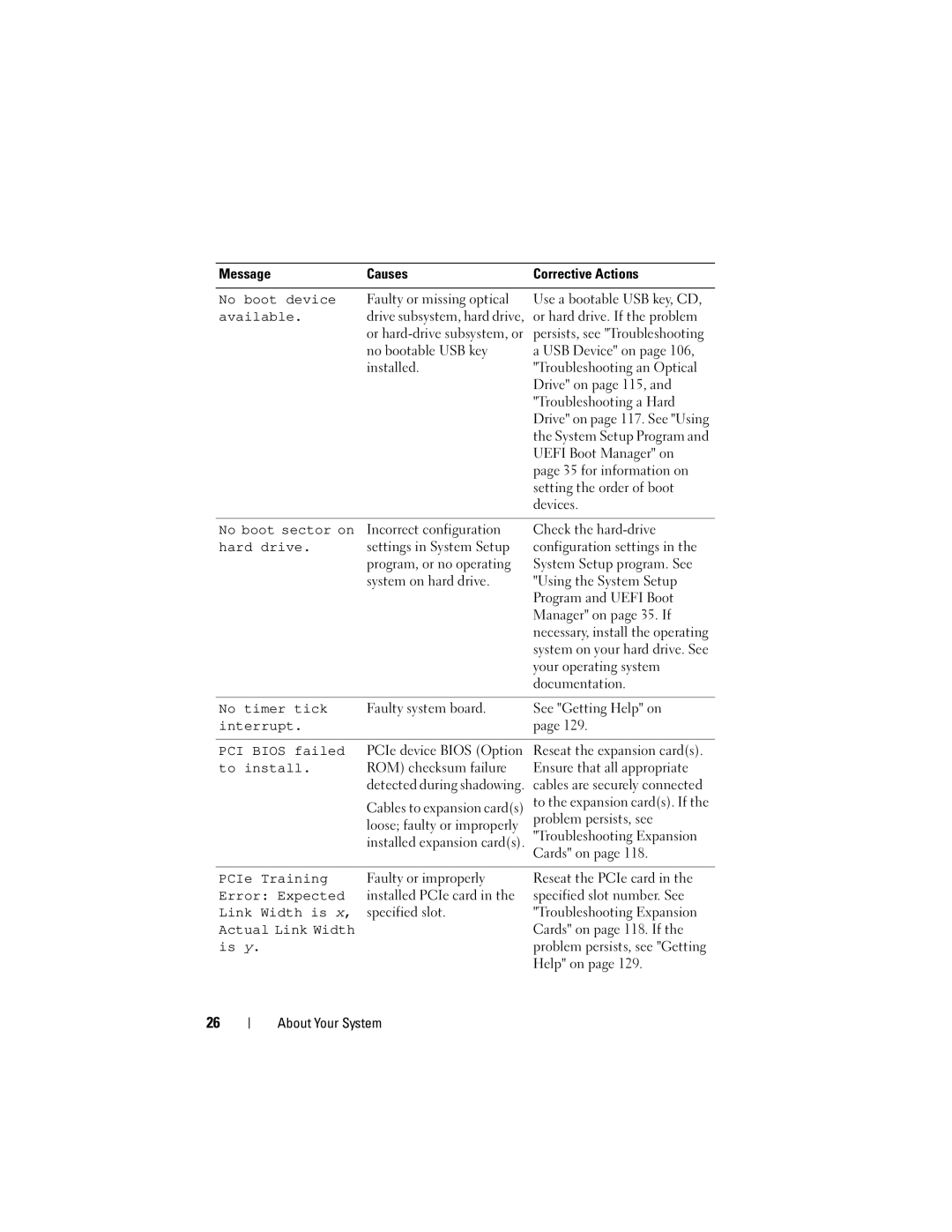
Message | Causes | Corrective Actions |
|
|
|
No boot device | Faulty or missing optical | Use a bootable USB key, CD, |
available. | drive subsystem, hard drive, | or hard drive. If the problem |
| or | persists, see "Troubleshooting |
| no bootable USB key | a USB Device" on page 106, |
| installed. | "Troubleshooting an Optical |
|
| Drive" on page 115, and |
|
| "Troubleshooting a Hard |
|
| Drive" on page 117. See "Using |
|
| the System Setup Program and |
|
| UEFI Boot Manager" on |
|
| page 35 for information on |
|
| setting the order of boot |
|
| devices. |
No boot sector on Incorrect configuration
hard drive. settings in System Setup program, or no operating system on hard drive.
Check the
No timer tick | Faulty system board. | See "Getting Help" on |
interrupt. |
| page 129. |
|
|
|
PCI BIOS failed | PCIe device BIOS (Option | Reseat the expansion card(s). |
to install. | ROM) checksum failure | Ensure that all appropriate |
| detected during shadowing. | cables are securely connected |
| Cables to expansion card(s) | to the expansion card(s). If the |
| loose; faulty or improperly | problem persists, see |
| installed expansion card(s). "Troubleshooting Expansion | |
|
| Cards" on page 118. |
PCIe Training Error: Expected Link Width is x, Actual Link Width is y.
Faulty or improperly installed PCIe card in the specified slot.
Reseat the PCIe card in the specified slot number. See "Troubleshooting Expansion Cards" on page 118. If the problem persists, see "Getting Help" on page 129.
26
About Your System
